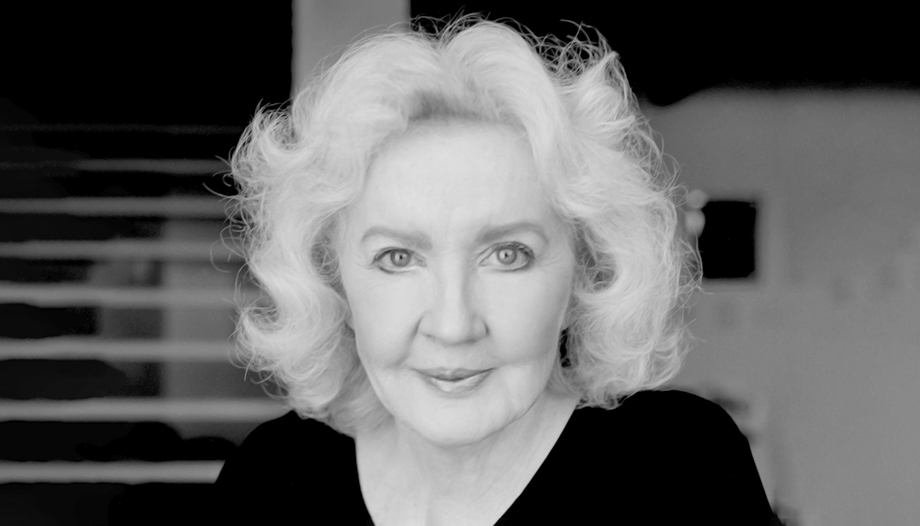Basic Principle No. 5 of the book The art of writing reads as follows: "Creativity is a gift from God. Using it is the gift we give back to God." (p. 39). The pedagogy of Julia Cameron (Libertyville, near Chicago, 1948) revolves around the idea that God is in favor of each of us being creative. And she also tries to banish the popular belief that the artist is typically bohemian, troubled and poor. Cameron argues that we are all creative and that we should care for each other's creativity.
In addition to being a writer and teacher, Julia Cameron is a journalist, artist, filmmaker, playwright and composer. Her mother was a poet and her father worked in advertising. She was married to Martin Scorsese (1976-77) and they had a daughter, but his sudden fame, his infidelity, and her alcoholism complicated their married life.
Overcoming the blockage
In 1978, divorced and the mother of a little girl, she nevertheless managed to stay sober. She was 30 years old and her concern was how to remain creative and sober at the same time. A friend offered her the book Creative ideas (Ernest Holmes, 1964) that helped him to approach creativity as an authentic spiritual life path. From this personal evolution, he began to give classes on how to overcome creative blockage. With the material from those classes, he wrote a book that he photocopied and sent to his friends in the process of creative recovery and to his students. He received many expressions of gratitude for his book and thought of publishing it.
In a talk in Santa Fe, New Mexico, -where she currently resides-, Julia Cameron explained in 2017 that when she proposed to her literary agent to try to publish that book, he replied that the subject was not interesting and to focus on writing film scripts as she had been doing until then. Fortunately, by that time, Julia already knew that the book was necessary, both from her own experience as a teacher and from the testimonials she received from students and friends. So she fired her literary agent and looked for another agency. Finally, in 1992, the book was published by TarcherPerigee publishing house - now part of Penguin. It is titled The artist's path and has since sold more than five million copies and has been translated into countless languages.
Creative life
Julia Cameron moves one to feel that, regardless of one's beliefs, creativity is life itself. At The artist's path talks about two activities that every artist should do to recover and maintain his creativity: write three pages a day about whatever is on his mind at that moment and do a weekly creative activity alone, called an "artist's date", which can be anything from watching a movie or going to a museum to buying something of little value in a bazaar... He also encourages the recovering artist to go for a walk in solitude. On his website he explains why the three daily pages and the appointment with the artist are so important. The first, because they help to clear your head and discover what is preventing you from creating; the second, to keep the creative well full.
In each chapter, she also proposes small, inspiring and simple tasks as a way to bring the creative life to us: arranging a corner of the house that will be our creative place, giving ourselves small treats - like buying strawberries - or transplanting a plant to a bigger pot. Who can't do these kinds of things?
Julia Cameron has not had an easy life, but as she said in an interview in May 2006: "When I write I feel joyful, which explains why I have been so productive.". In the introduction of The Right to Write (1998) was presented as follows: "I have been writing since I was very young and, as I get older, I write more and more often and cover more and more genres. I have written narrative and non-literary works, films, plays, poems, essays, reviews, newspaper articles and even musicals. I write for love, for money, to escape, to ground myself, to unplug, to tune out, to tune in, and to do almost anything where writing has some use. For over thirty years writing has been my constant companion, my lover, my friend, my job, my passion, and the way I relate to myself and the world I live in. Writing is my way of life and sometimes it even seems like the reason for my life." (p. xv).
Writing and spirituality
Julia Cameron was raised Catholic, and it is likely that this upbringing has helped her to discover the deeply spiritual meaning of all creative activity, particularly in personal writing. Her books have helped many, many people to get started in writing, thus broadening their spiritual experience: "Writing makes us masters of our world: it makes it directly and specifically ours. We should write because we humans are spiritual beings and writing is a powerful form of prayer and meditation that connects us both to our own intuitions and to a higher, deeper level of inner guidance. We should write because writing brings clarity and passion to the act of living. [...] We should write because it is good for the soul." (Ibid., p. xvi).








